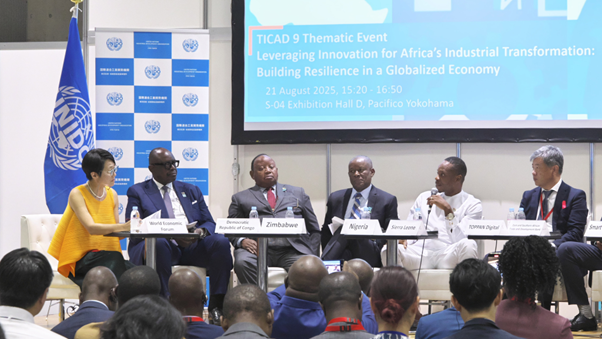TICAD 9 : Africa charts its own course in Japan-Africa partnership
In Yokohama, the 9th Tokyo International Conference on African Development (TICAD 9), held from August 27 to 29, 2025, brought together African and Japanese leaders under the banner of “co-creation.” Behind the headline-grabbing announcements—$5.5 billion in investments, AI training for 300,000 Africans, and support for health and trade—emerges a new reality: Africa is increasingly asserting its priorities and defining its own development strategies.

At the Pacifico Convention Center, the theme of this edition, “Co-create innovative solutions with Africa,” resonated throughout the summit. Japanese Prime Minister Shigeru Ishiba highlighted the importance of a partnership based on innovation and mutual engagement: “Japan has consistently believed in the future of Africa. Locally rooted solutions are important for Africa’s development.”
Japan has consistently believed in the future of Africa. Locally rooted solutions are important for Africa’s development

On the concrete side, Japan announced several measures aimed at strengthening its cooperation with the continent. These include $5.5 billion in financing and loans, including $1.5 billion via the Japan International Cooperation Agency (JICA), focusing on AI training for 300,000 Africans, support for healthcare and educational infrastructure, and initiatives to promote trade and investment. These commitments reflect a shift from traditional aid toward projects emphasizing tangible results and sustainable partnerships between Japanese and African businesses.
Africa requires mechanisms that allow us to implement transformative projects without compromising sovereignty
These announcements illustrate a reorientation of Japan’s strategy in Africa. Instead of top-down support, Tokyo now favors co-creation, private-sector involvement, and alignment with African policies. Since the first TICAD in 1993, Japan has invested roughly $30 billion across the continent in infrastructure, education, health, and agriculture. Trade between Japan and Africa reached $37 billion in 2024, confirming Japan as a long-standing partner—but one that is now paying closer attention to local priorities.
African leaders at the summit also emphasized the need to safeguard sovereignty and promote endogenous strategies. Angolan President João Lourenço, then chair of the African Union, stressed: “Africa requires mechanisms that allow us to implement transformative projects without compromising sovereignty.” AU Commission Chair Mahmoud Ali Youssouf added: “The private sector is the indispensable engine for Africa’s inclusive growth and sustainable development.”
We hear ‘co-creation,’ but where is the real transfer of technology?

Economic actors from Africa voiced practical expectations. Cameroonian entrepreneur Naomi Mbakam, founder of Leelou Baby Food, cautioned: “We hear ‘co-creation,’ but where is the real transfer of technology?” Fintech leader Tunde Olatunji highlighted the importance of combining Japanese mentorship with local innovation to help African startups scale globally.
TICAD 9 thus reflects a shift in the Japan-Africa relationship: billions of dollars in investment are on the table, but the focus is increasingly on how Africa defines its priorities, governs partnerships, and promotes regional integration. The summit underlined that the success of these commitments will depend on alignment with local strategies and the ability of both sides to collaborate in a framework of mutual respect and long-term reciprocity.






